5 things to look for when buying protein powder
Get the scoop on choosing the right supplement for your health goals.
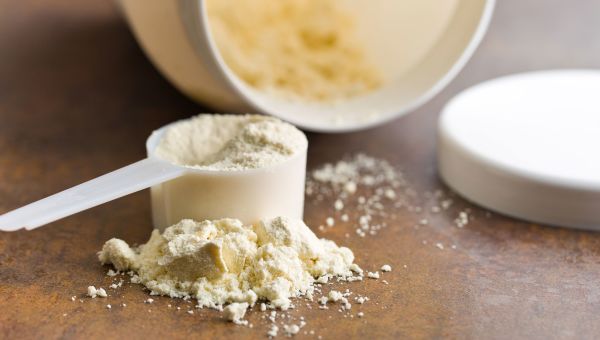
If you’ve ever stepped foot in a gym or found yourself scrolling through a feed of fitness-inspired Instagram posts, you’ve likely seen the latest craze: protein powder.
Protein powders claim to do it all—boost weight loss, promote muscle growth, replenish your body after a long workout and more. And with a ton of different varieties—whey, pea, soy, rice and hemp—shopping for the perfect supplement is far from simple.
Don’t be so quick to scoop. Registered dietitian, Tori Cohen, RD, with Los Robles Hospital & Medical Center in Thousand Oaks, California, explains everything you need to know about buying and using protein powder.
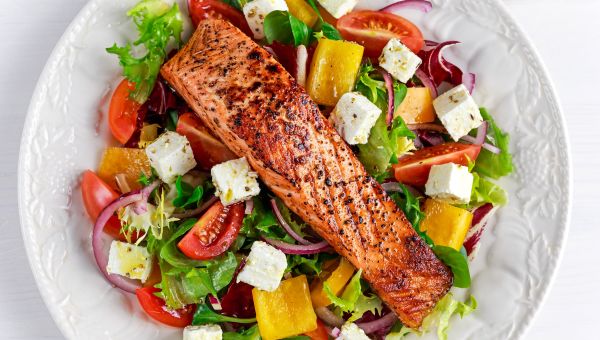
Choose whole foods first
Each of our body’s cells needs protein, found in plant and animal sources and supplements, to function properly.
The amount of protein our bodies need depends on a number of things: age, gender and activity level. And as important as protein is, our bodies don’t need all that much. As a general rule, healthy adults should consume between .8 and one gram of protein for every two pounds of body weight. For a 150-pound person, that's between 55 and 68 grams a day.
It’s possible to get the recommended amount of protein through foods like fish, poultry, beans and lentils. Cohen recommends the average person consume whole foods as a main source of protein, instead of blending up a protein shake. “Your body is going to be able to break down whole foods a lot easier than something that's processed,” she says.
Some high-protein whole foods include:
- Three ounces of chicken breast—21 grams of protein
- Three ounces of salmon—19 grams of protein
- Half cup of black beans—7.6 grams of protein
- Half cup of lentils—9 grams of protein

Know if you need extra protein
Not everyone needs protein powder, but some could certainly benefit from the added boost. “If you’re ill and not eating enough protein in your food, that would be a reason to supplement,” says Cohen. “If you're actively training for hours a day, your body would also require more protein to maintain or grow muscle mass.”
For those looking for a convenient way to meet daily protein requirements, and can't meet them otherwise, whipping up a protein shake is a good option. Although athletes can typically get enough protein from diet alone, a supplement may be a fast, convenient way to deliver protein to your body after a workout. Research in the field is ongoing, but some studies suggest consuming protein, in supplement form or from a whole food source, immediately after a session in the gym can help grow muscle and improve body composition.

Get the details
Not all protein sources are the same, and not everyone needs protein powder in their diet. It’s important to remember, when it comes to protein powders, they’re just a supplement, and they shouldn't be your main source of the nutrient. “It's meant to be taken in addition to what you're already eating in whole food sources,” says Cohen.
If, for one reason or another, you can’t get enough protein from whole foods alone, here are some supplement options to may want to try.
- Whey protein is a milk-based supplement that’s easily absorbed by the body. To promote muscle function, our bodies need a number of amino acids that it can’t produce on its own. Most of the time we get essential amino acids from food, but whey protein also contains all of these necessary nutrients. “Your animal proteins [like whey] are going to have all of the amino acids that your body requires for muscle maintenance and development.” Research suggests whey protein may help lower blood sugar levels and improve maintenance of lean muscle mass.
- Soy protein is one of the only plant-based proteins that contains all of the essential amino acids. One study suggests soy-based proteins, when compared with milk protein and a carbohydrate-rich placebo, can reduce your heart disease risk. Soy may also help boost bone health.
- Pea protein might be a good option for those looking to avoid dairy, but because plant protein sources lack some amino acids, it needs to be supplemented with complete proteins in your diet. Results from one 12-week study of 161 men between1 8 and 35 suggest, when coupled with resistance training, pea protein was as effective as whey for increasing muscle thickness.
- Rice protein is another plant-based option. Research suggests rice protein is effective in changing body composition and improving exercise performance. Be mindful not to use this supplement as the primary source of protein, as it lacks some of the necessary amino acids.
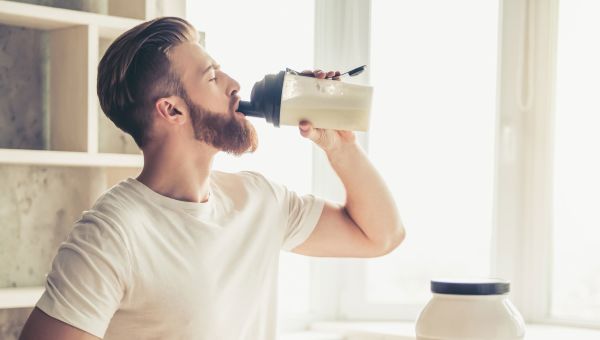
Pick the best product for your goals
Your protein choices should vary based on your specific needs. Some protein powders are better than others for certain things, like helping you build muscle, shedding pounds or supplementing a vegan diet.
“Whey protein is made from an animal source and is the most easily digestible protein,” Cohen says. “It's going to help to bulk you up though,” she adds. If you’re actively training, and looking to add muscle mass, whey protein is a good way to go. Research is somewhat inconclusive, but some studies suggests a post-workout protein shake can increase muscle growth and reduce soreness when consumed after daily exercise. Downing this drink after a single bout of exercise will hardly be as helpful.
If you’re turning to protein shakes to help you lose weight, it’s important to read the label before starting your blender. “If your end goal is weight loss, you certainly don't want something with a lot of extra sugars or calories,” says Cohen.
Research suggests an increase in dietary protein, when coupled with exercise, may help promote weight loss. That's not all. Results from one 12-week study of participants who reduced their daily caloric intake by 500 calories, suggest those who consumed protein shakes twice a day lost more fat than those who consumed another beverage with the same number of calories.
If you're looking to supplement a vegan diet with protein powder, look for plant-based proteins, like soy, pea, hemp and rice.
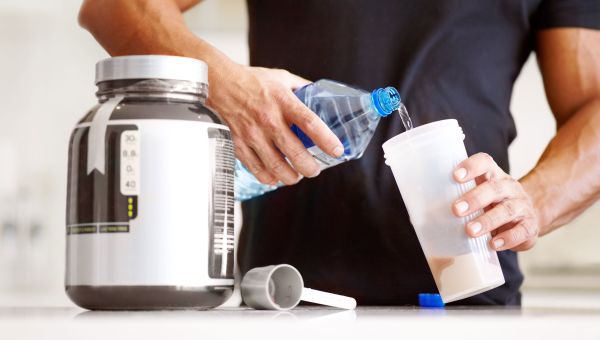
Keep an eye on the ingredients
Like any packaged food, there’s potential for protein powder to be loaded with additives. Companies add fillers to protein powders for a number of reasons—cost, flavor, a longer shelf life—so reading the ingredients before making your purchase is important. Be cautious: Protein powders, like other supplements, are poorly regulated, and ingredients vary widely.
Cohen warns: “There are manufacturers that will add bulking agents, so they can charge you more money.” Your body often has a hard time digesting these fillers.
As a customer, you should look for:
- A powder that’s made primarily of protein
- A product with ingredients you can pronounce
- A supplement free of added sugars or artificial sweeteners

Enjoy the taste of your shake
Protein powders, often mixed with water in the ever-popular shaker bottle, are not typically renowned for their great taste. And those that pack a sweet punch are likely loaded with sugar, artificial sweeteners and other additives. Read the labels carefully—supplements designed to help you gain weight are loaded with calories from sugar.
It’s possible to avoid these unhealthy fillers, without having to choke down a bland and gritty shake. It’s all about what you blend it with.
Add a scoop of healthy protein powder into one of your favorite smoothie recipes, like banana and almond butter, and blend away.
Other sweet, satisfying and good-for-you shake recipes:
- Berries, almond milk and banana
- Banana, spinach and water
- Mango, pineapple and coconut water
More On


video

article
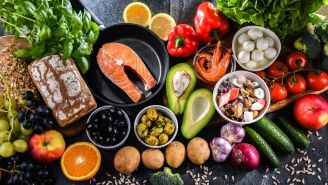
slideshow


video


video
